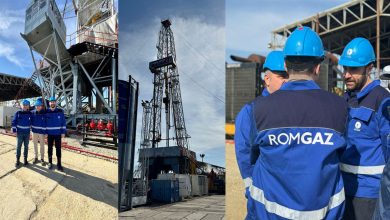The information technology revolution and the oil & gas labour market
The industry of fossil fuels transformed the world as we know, bringing humanity at the peak of civilization up to know. While the decline of the oil and gas industry is obvious, its end is not imminent, and if we could not think about industry development, we can observe that an industry transformation is on its way.
The information technology revolution that we can currently witness affects all the aspects of people lives, both personal and professional. In the entire human evolution, people had not been able to better overcome the challenges our civilization is facing, then we currently are. The tremendous innovation that organizations has brought into their products and services through the joint effort of people and technology created the context of solving some of the greatest issues of humanity. While in the past people created the technology, in the present, people and technology are interfering, in the future, the technology could take charge of more complex matters.
As the energy sector is having a difficult time concerning the fossil fuels industry decline, corroborated with the progress of technology, companies are focusing on creating competitive advantages by automated processes that could reduce costs, increase productivity, and ensure a safer working environment. The evolving technology is influencing every aspect and level of oil and gas industry, from upstream to midstream and downstream.
There is a multitude of technological innovations that are considered or already implemented in the oil and gas sector, affecting the labour market, already in difficulty due to the cut offs. Among the most interesting recent technological innovations used complementary with people, can be mentioned: autonomous tanks used in distribution of petroleum retail products to replace the drivers, semi-automatic drilling wells installation to reduce the number of drilling technicians connecting the pipes, automated big-data systems to analyse information in order to optimize processes and reduce downtimes of the refineries, electromagnetic technology to precisely detect the size of oil and gas deposits and the composition of the deposit and the examples could go on.
The advantages of technological progress for the human resources within oil and gas sector
There is a fact that technological progress and automation come with reducing the number of the personnel needed in performing the activities as well with the necessity of skills enhancements of the remaining people within a specific organization or industry. This obviously affects an important number of people but has some positive aspects, especially for the people who are enough competitive to remain within the industry.
Introducing innovative and automatic processes and equipment in the oil and gas field takes the people out of their comfort zone, meaning that they need to be better prepared and qualified to remain competitive, increasing people interest for their own personal and professional development.
The technological progress provides also higher standards of safety and additional support for people remaining in the industry, as they can achieve more with less effort and diminished level of stress. This can be translated in higher satisfaction within the job and less incidents caused by human errors.
While the change resistance differs among different professionals, the ones with lower resistance to change and higher interest for new skills development will benefit the most, as the level of wages could improve for the people matching the new skills required within the oil and gas industry and for the people that are prepared to adapt to the new challenges and digital technologies.
The challenges of technological progress for the human resources within oil and gas sector
One important challenge that the technological progress is creating for the labour market with the oil and gas industry is concerning new entrants on the labour market who receive little preparation during their educational programmes regarding the industry latest innovations and technological paradigm shift.
As well as the young employees, people close to retiring are also affected by the challenges and changes within the oil and gas market, as the time span needed for skill enhancement might be similar with the time span up to the retirement, so they might not be considering the alternative of professional development, choosing inactivity or jobs below their qualification level.
Maybe the most important challenge for the human resources within oil and gas industry is the mind-set reset. People need to accept the idea that the sector is transforming and they need to adjust accordingly, otherwise they will excluded. People within the oil and gas industry need to embrace the technological progress, develop new skills that maintain them competitive on the labour market and positioning themselves as open-minded, flexible and digital literate professionals.
While the oil and gas industry is facing a transformational process integrating technological and information innovations, the digital environment is critical for recruiting the people with the right skills for the industry new challenges. Things such as job search engines, professional networks or video CV are becoming usual tools for matching the candidates with the employers’ requirements.







